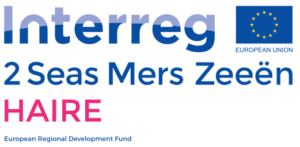HAIRE
The aim of HAIRE is increasing community vitality of the elderly in rural communities as well as improving the approach of loneliness and isolation.
Rural communities face substantial challenges. Their populations are ageing and the possibilities to use public transport are decreasing. There is a lack of local support and facilities, while services are reduced. The healthcare system is fragmented and loneliness and isolation increasingly manifest themselves. These circumstances have a negative influence on the health and wellbeing of the elderly. Together with elderly people themselves, welfare organisations and municipalities, HAIRE assesses the needs and helps the elderly to develop solutions themselves in a way that their requirements are better met. The larger objective behind the project is to improve the vitality of rural communities.
our role
The Solidarity University is partner in this international Interreg2Seas project. The Solidarity University is responsible for the implementation of HAIRE in the Netherlands. The Solidarity University develops pilot sites and also takes care of research, and process management.
Common challenge
Rural communities in the 2Seas area are at risk of dying out: their populations are ageing and poor public transport, lack of local support and facilities, out-migration of young people, reduced services, isolation and fragmented health and social care systems all negatively impact the health and wellbeing of older people (1). The numbers of elderly (aged 60+) will double in the next 30 years in the 2Seas area (2, 3). The common societal challenge for the 2Seas area is managing the needs of the ageing population whilst encouraging healthy ageing and realising the potential of older people, which has been overlooked (4). The benefits of healthy ageing are felt by individuals, communities and service providers (5, 6). However, little has been done to empower and enable older people to define the support they need, participate in the design and delivery of services, and develop solutions for themselves with the support of the voluntary, public and private sectors.
Develop and test systems that empower and enable older people (aged 60+ and no longer employed) in rural areas to:
- define what support they need;
- participate in the design & delivery of services;
- develop solutions for themselves to reduce loneliness & improve quality of life, health & wellbeing, based on their own interests, capabilities & preferences & supported by the voluntary, private & public sectors.
Overall objective
Expected change in pilot sites:
reduce isolation & loneliness & improve wellbeing in the 60+ age group;
increase collaboration between participating agencies and Voluntary & Community Sector Organisations (VCSOs);
improve rural community vitality;
increase active participation of older people & voluntary sector in service design & delivery;
create new models of service delivery;
achieve widespread change to models of delivery across the 2Seas area and beyond.
cooperation
The Netherlands:
- SMWO Goes
- HZ University of Applied Sciences
- GGD Zeeland
- Stichting Welzijn Veere
- ZB Planbureau en bibliotheek van Zeeland
International:
- University of Exeter
- Conseil Départmental du Nord
- Rother Voluntary Action
- East Sussex County Council
- University of Plymouth
- Welzijnszorg Kempen
- Université d’Artois
- M-A-P Digital Projects Ltd
- iDROPS
- OCMW Laakdal
- Stad en OSMW Poperinge
- Devon Mind Ltd
- Feock Parish Council
- Unis-Cité Hauts de France


